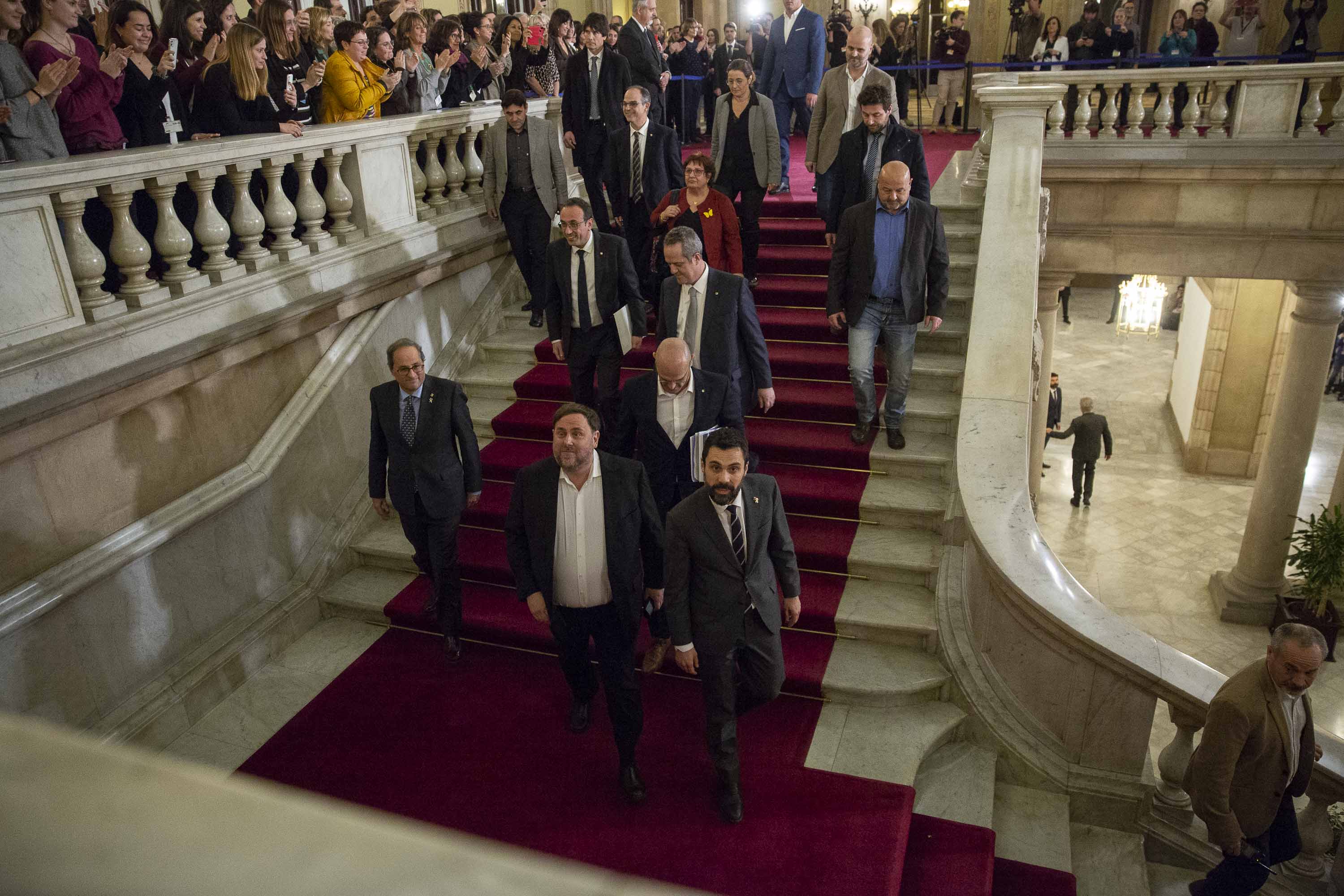"It's not easy to be here", confessed former Catalan minister Dolors Bassa as she started speaking today to the Parliament commission investigating Madrid's decision to take direct rule of Catalonia in 2017. "For any of us. It's not been easy after 700 days in prison", she continued, describing the "emotional and psychological impact" of their return to the chamber.
Josep Rull for his part admitted to the clash of "many conflicting feelings" and to feeling out of place after months away from the political stage. "The fact that we're in suits, ties, with pins with the government shield is extraordinary, exceptional in our daily lives in prison," he said. He also wanted to say that his appearance before the commission shouldn't be interpreted as a sign of a normality that doesn't exist: "This appearance is the expression of a democratic anomaly."
Rull contrasted their treatment in the Catalan Parliament today with that they received in the Spanish Congress when they went to take their seats their last Spring. That time, they were ordered to wait in the chamber until the police came to look for them.
Of the six who spoke to the commission today, Bassa was the bluntest about the situation they face in prison. She talked about the problems and risks associated with their situation, which also affect the physical, psychological and emotional health of their relatives, although she was careful to stress that she could only speak for herself. She listed anxiety, insomnia, blood pressure, headaches and toothache. "Everyone has to know that in many cases the prison environment acts as a pathology agent on our persons. It hurts a lot when we hear of how the word prison is trivialised."
At the end of the day, the prisoners left, back down the main staircase and out of the front gate as their gathered colleagues sang Els Segadors, the Catalan national anthem.

